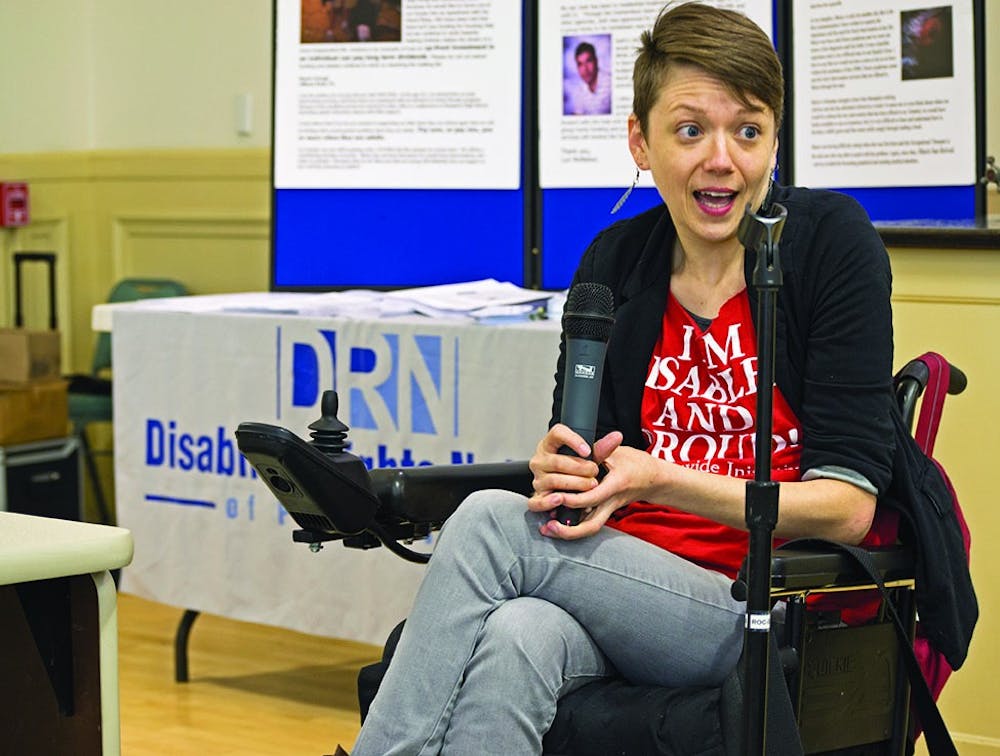As preparations were made for a presentation on Tuesday, professors realized the guests of honor could not go on stage. The reason — the stage was too tall.
While Shippensburg University may seem handicap-accessible, this stage proved a barrier for those with physical disabilities. Jean Searle, policy advocate at Disability Rights Pennsylvania (DRP), and Dynah Haubert, attorney at DRP came to SU to speak about their personal experiences with disabilities, and their work with DRP.
“Disability is not something that I want to overcome and minimize and try and be as nondisabled as possible to succeed in the world. I want to live in a world that finds disability valuable for what it is,” Haubert said before flashing her T-shirt that read, “I AM DISABLED AND PROUD!”
Haubert explained how when she was first in a wheelchair, after college, it was hard to be accepting of her disability, and she often felt alone since it seemed that no one paid attention. Soon, she realized how many obstacles disabled people face, despite the Americans with Disabilities Act of 1990 (ADA).
One of the most common problems for those with disabilities is being able to enter a building. Haubert said companies will occasionally add ramps to their entrances and be seen as partaking in a kind gesture, but in reality it is her right to be able to enter a public building just like anyone else. Other problems disabled people face are high tables and counters at restaurants.
Searle was institutionalized for 10 years. She explained that institutions are the last stop for those with disabilities since there is nowhere else to put them.
“People just treated you like you were nobody and they thought that they could abuse you…which they did all the time and they all got away with it,” Searle said.
Once people are released from institutions, they typically work for shelter workshops. These workshops are centers for people with disabilities to build things for companies, while earning only 5 percent of what an average worker would. Searle feels these should be eliminated and replaced with integrated employment since they pay very little.
Searle advocates not only for herself, but also for her siblings who have disabilities. She has hopes that one day, those with disabilities will no longer have to fight the system.
“What it means to me to be an activist is to be out there and fight for the rights of people with disabilities, [because] there’s some people that don’t have a voice, so I’m their voice,” Searle said. “I’m the one to tell them what they want to hear, what should be happening.”





The Slate welcomes thoughtful discussion on all of our stories, but please keep comments civil and on-topic. Read our full guidelines here.